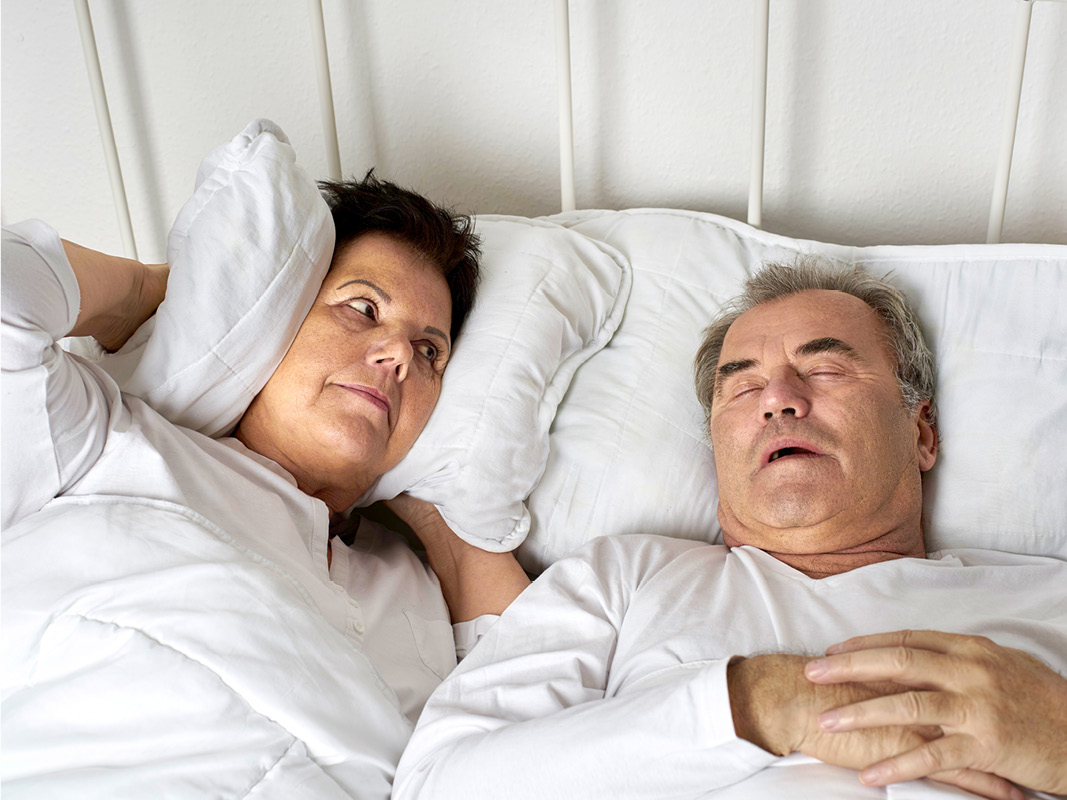Listen to the podcast here.
Do you or your partner experience loud snoring? Or do you stop breathing, gasp or choke during sleep, experience excessive restlessness at night, or feel overly sleepy during the day? You may have sleep apnea.
While you, as the snorer, may feel as if your snoring isn’t affecting your sleep, consider your partner. They may feel differently. Relationships can suffer is partners are irritated about being kept awake at night or are sleeping in separate rooms. More than 41% of women who say they need a good night’s sleep have it instead interrupted by a snoring partner. This can foster resentment and decrease intimacy in a relationship.
Effects obstructive sleep apnea (OSA)
Snoring and obstructive sleep apnea (OSA) can have serious health ramifications as well. The sufferer can move out of deep sleep into light sleep when their breathing pauses, thus lessening the quality of sleep. OSA can also trigger the release of stress hormones which change how your body uses energy. This can make you feel tired and sleepy during the day.
Lack of quality sleep can cause weight gain, memory loss, and skin and brain aging. Combined with sleep apnea, the risks can be higher for heart attack, stroke, congestive heart failure, atrial fibrillation, diabetes, high blood pressure, certain cancers, and even sudden death. Treating either condition can decrease these risks.
Often, snoring is dismissed as a natural part of aging. And while it’s true that snoring can increase with age and weight gain, it is not ordinary, and can and often should be treated. Especially when loud snoring is associated with sleep apnea.
Treatments for Loud Snoring with Sleep Apnea
Treatment for snoring range from alteration of your lifestyle all the way to surgery. Most commonly, doctors recommend a CPAP, a device that fits over the mouth or nose and blows air with continuous pressure into the airway to keep the airway from collapsing and allow normal breathing.
Some individuals can experience difficulty using a CPAP machine. In this case, there may be other options. You should speak to your doctor or a sleep provider about therapies.
Taking the appropriate steps to get tested prior to getting any treatment prevents an inaccurate self-diagnosis, inadequate treatment and/or premature dismissal of the problem. Contact the specialists at Airway & Sleep Group to find out more.

